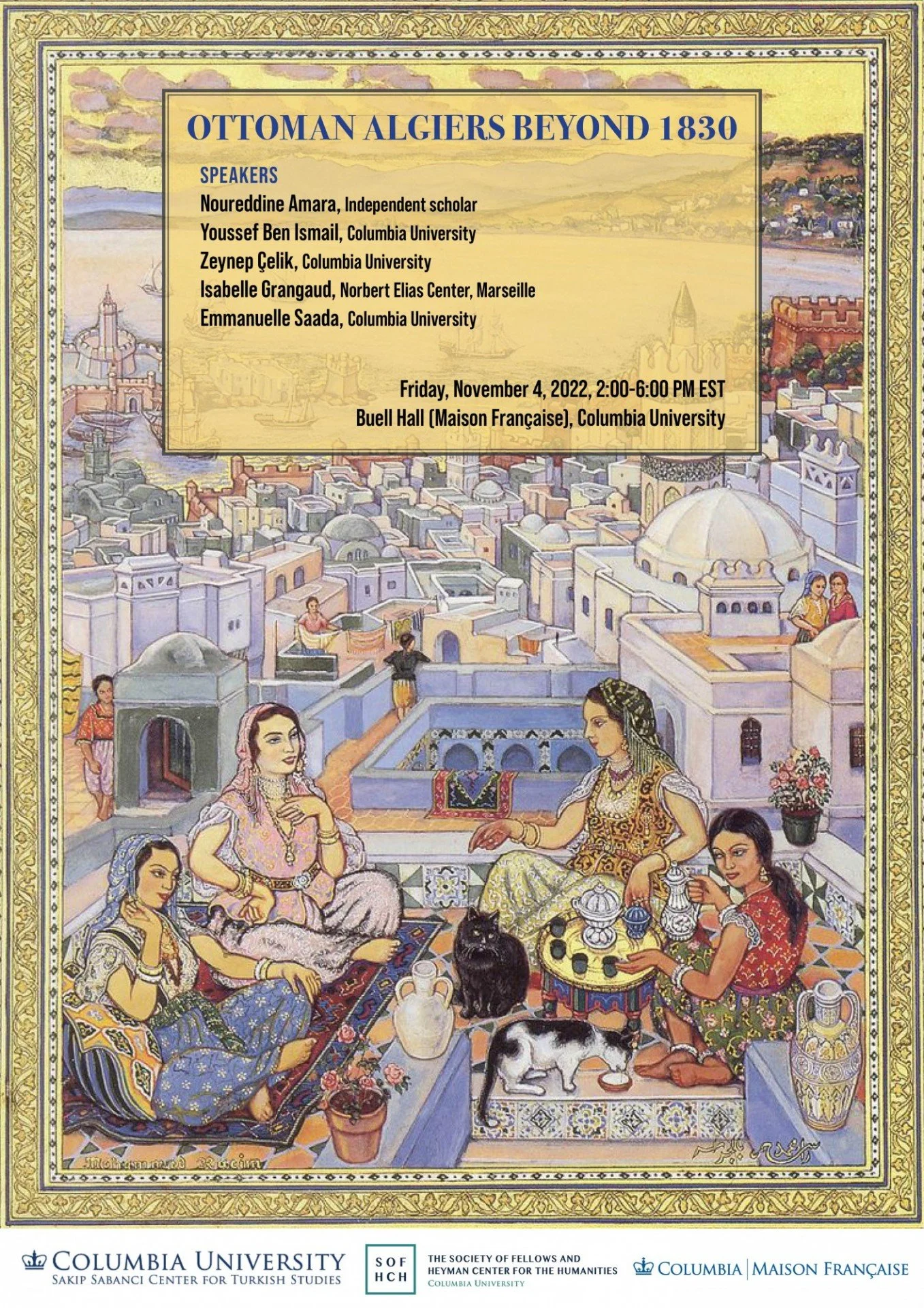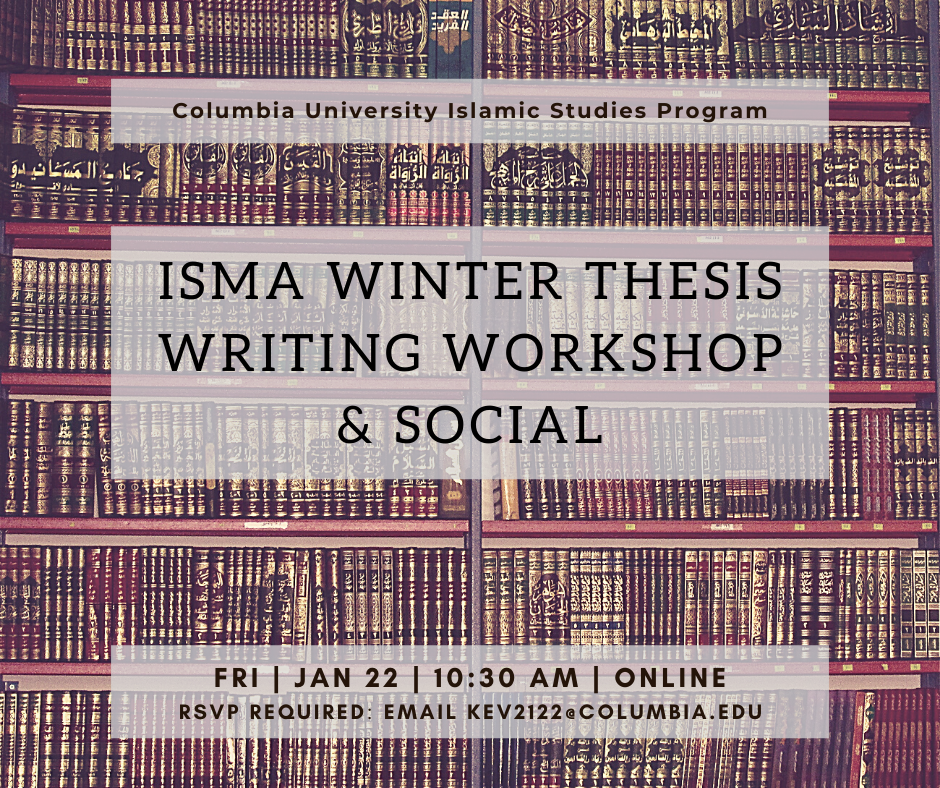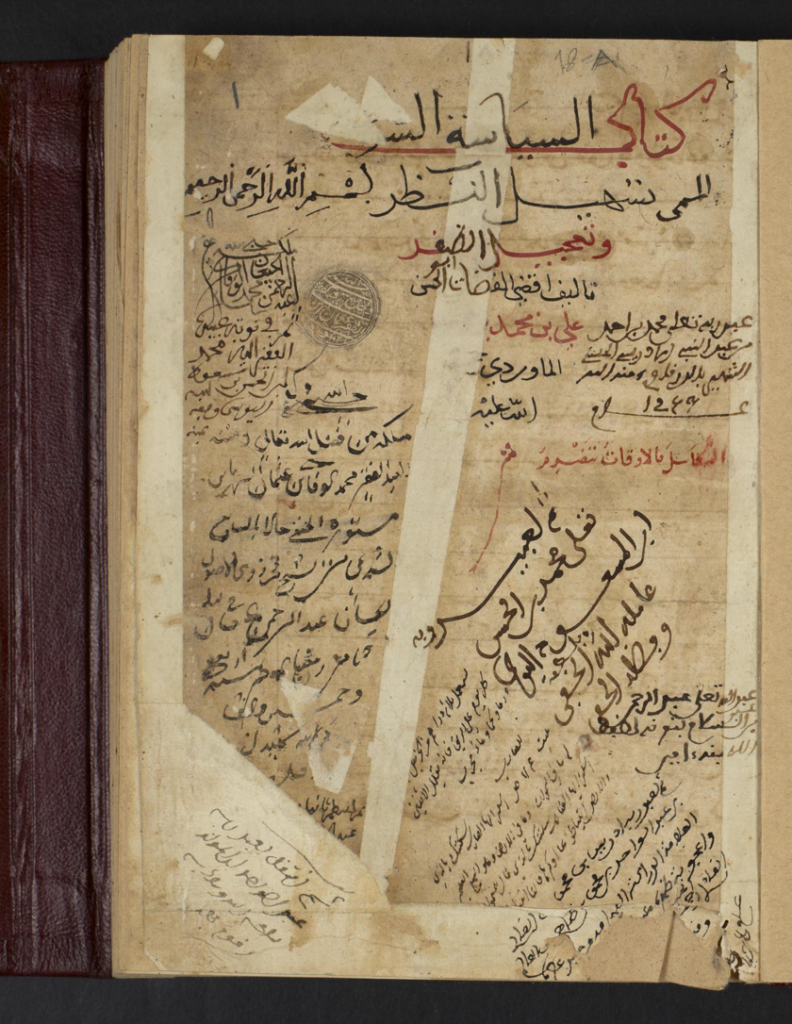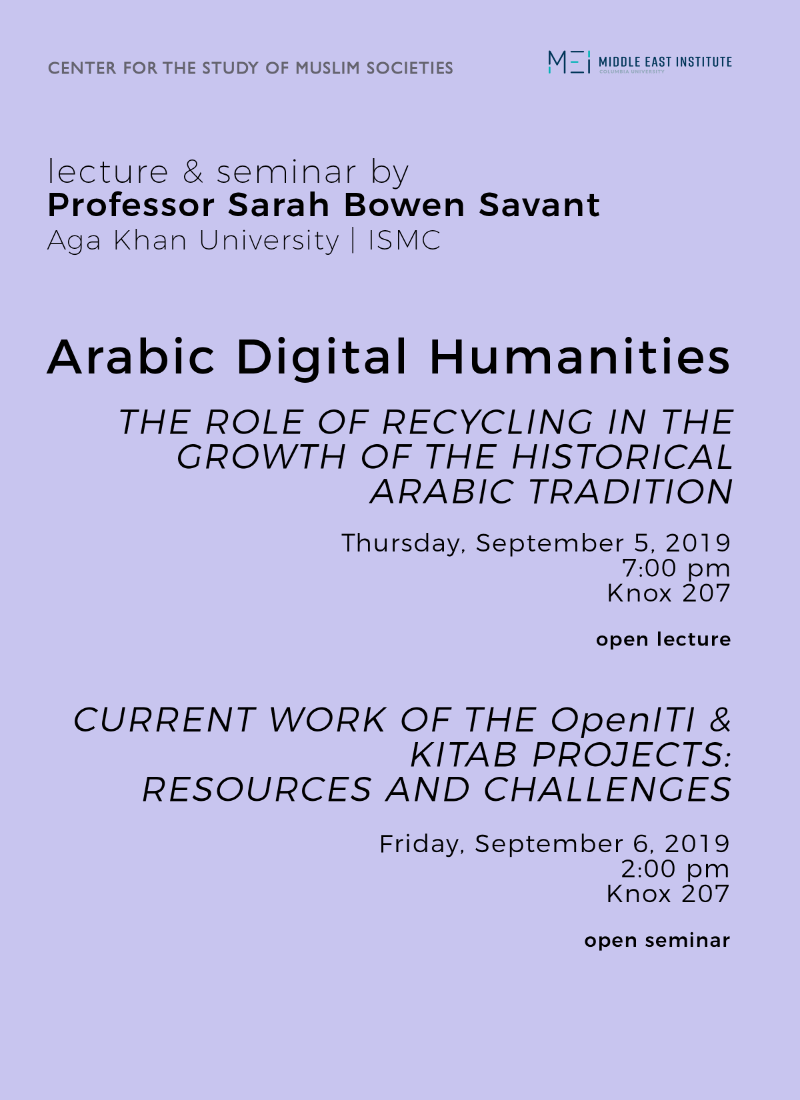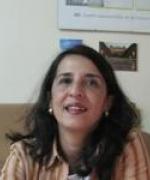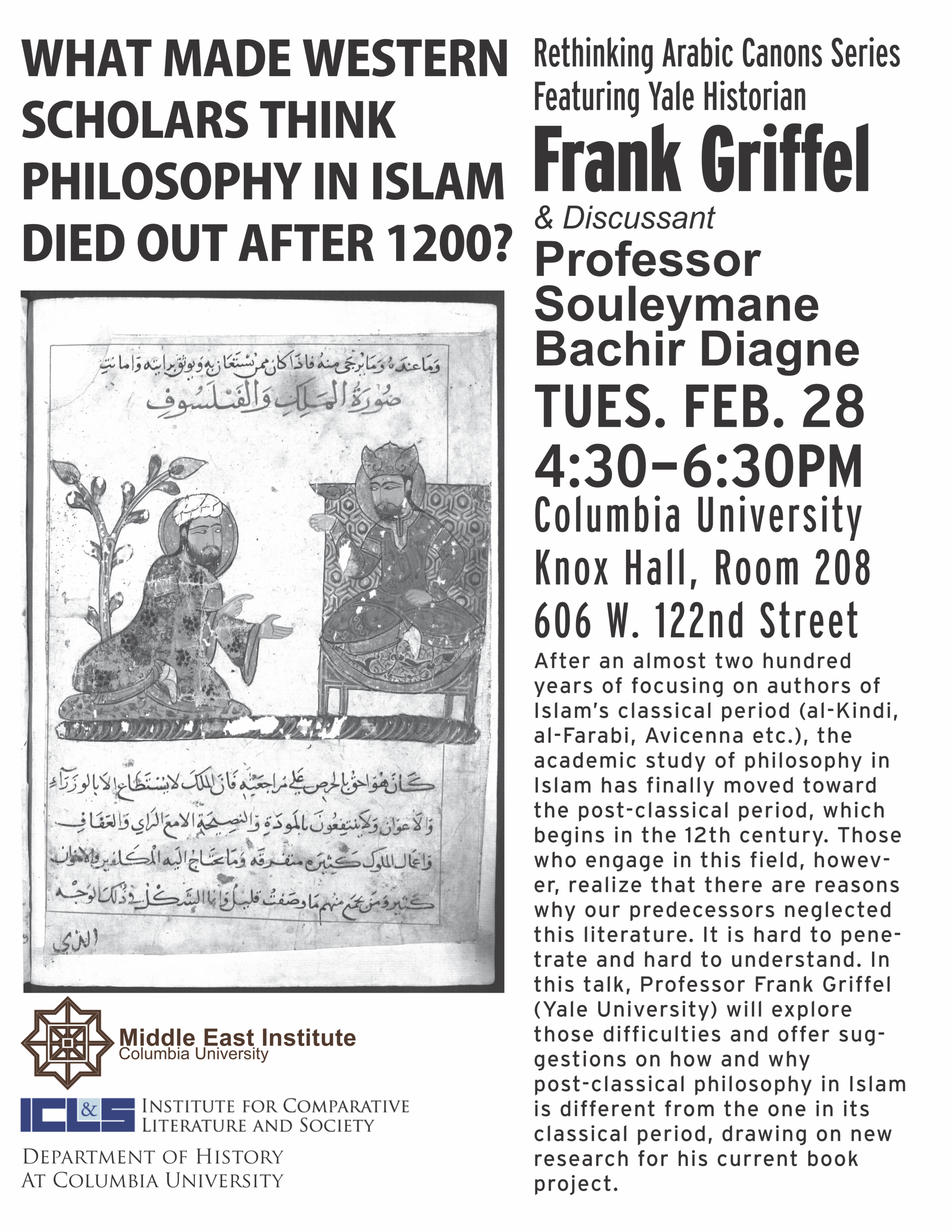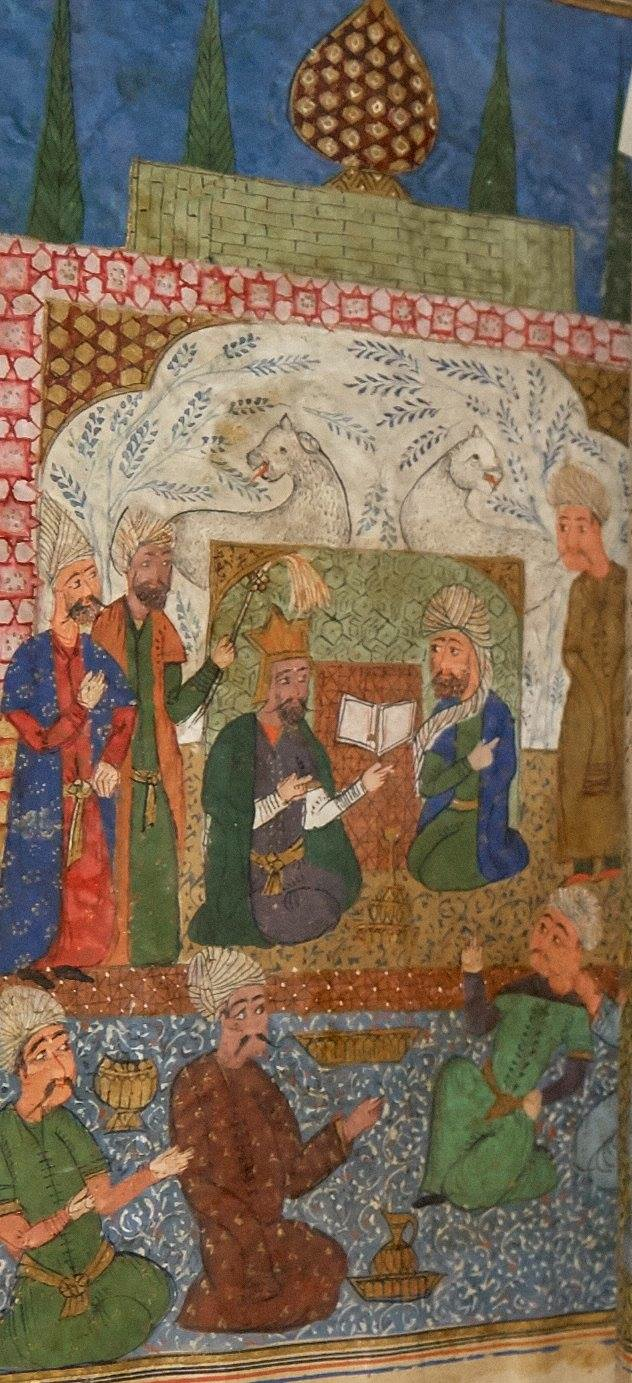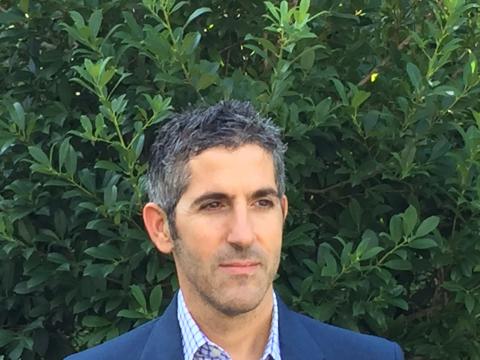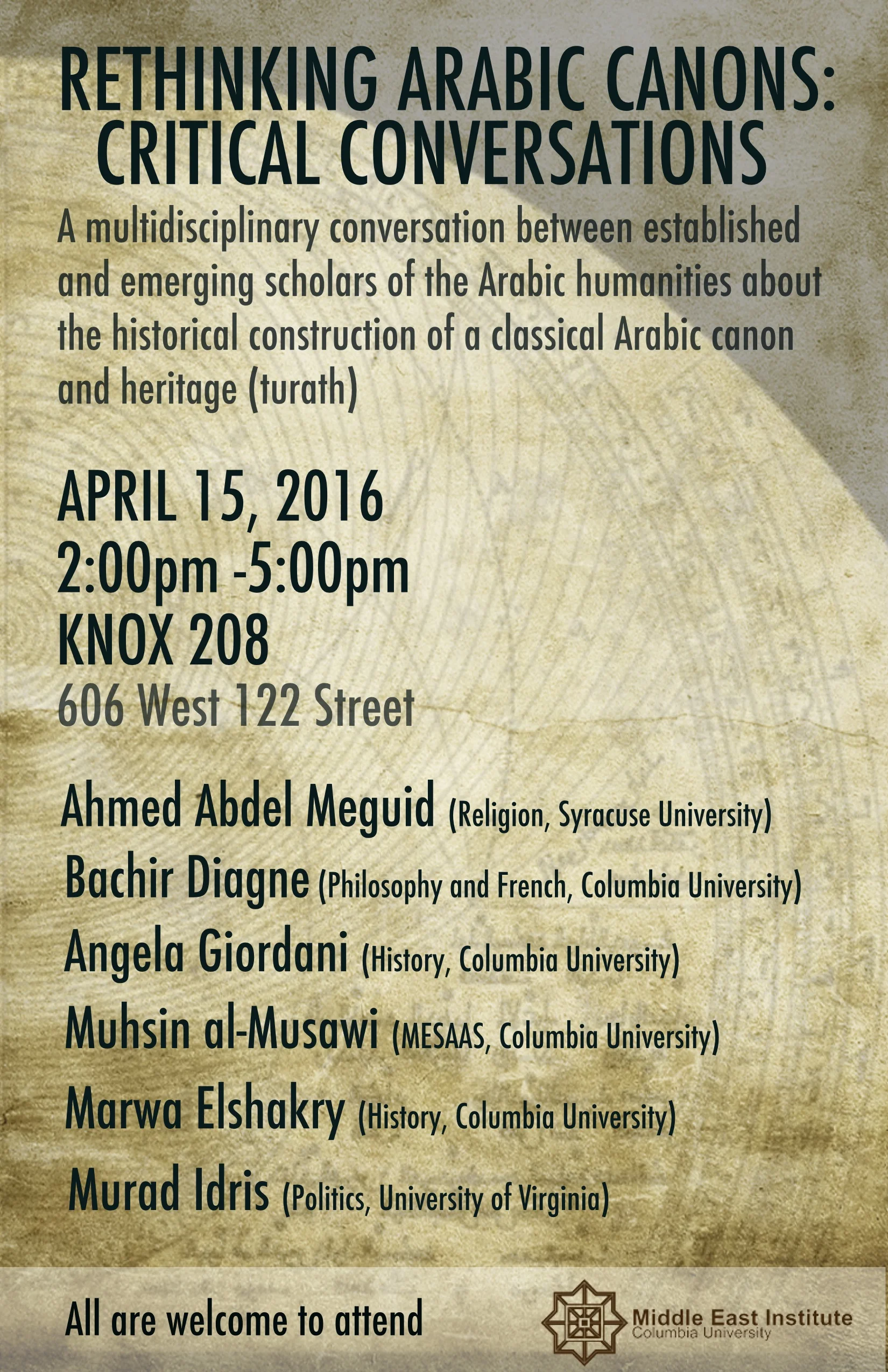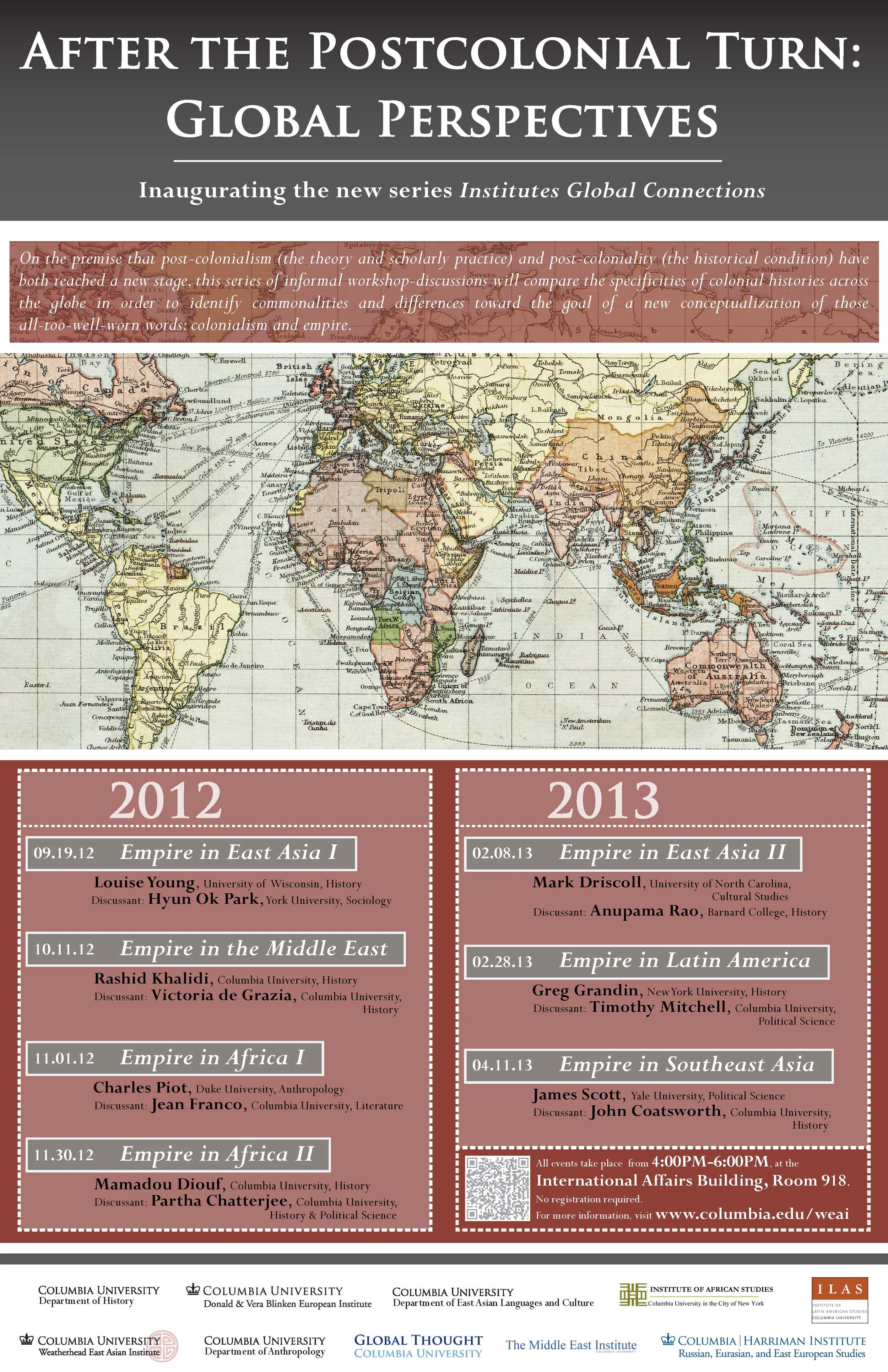Columbia University Middle East Institute will be hosting a professional development workshop for teachers, grades 8-12.
This two-day course will provide a nuanced portrait of the experience of displacement and the figure of the migrant by focusing on literary, cinematographic, pedagogical, and theoretical materials.
Facilitator Biographies:
Anthony Alessandrini is Professor of English at Kingsborough Community College and in the MA Program in Middle Eastern Studies at The CUNY Graduate Center, where he is also a member of the Committee on Globalization and Social Change. He is the author of Frantz Fanon and the Future of Cultural Politics: Finding Something Different; the editor of Frantz Fanon: Critical Perspectives; the co-editor of “Resistance Everywhere”: The Gezi Protests and Dissident Visions of Turkey; and has recently published a poetry chapbook entitled Children Imitating Cormorants. He is on the faculty of the Brooklyn Institute for Social Research, and currently serves on the Executive Committee of the MLA West Asian Languages, Literatures, and Cultures Forum, and on the Nominating Committee of the Middle East Studies Association.
Hande Gurses holds a PhD in Literary Studies from University College London, and currently teaches in the English Department at Ryerson University and in the Department of Near and Middle Eastern Studies at the University of Toronto. She has published her work on Orhan Pamuk in Fear and Fantasy in a Global World, Global Perspectives on Orhan Pamuk, and other academic and non-academic journals. She was previously a Visiting Lecturer in the Comparative Literature Program at UMass Amherst, where she taught courses on the international short story, dystopian literatures, and ecocriticism. Her primary research interests include contemporary world literature, ecocriticism, and critical animal studies. She is interested in inclusive pedagogies and contemplative practices in higher education. At UMass Amherst she was the recipient of a TIDE fellowship (Teaching for Inclusiveness, Diversity, and Equity) and an active member of the Contemplative Pedagogy Working Group. Most recently she co-edited a volume on eco-critical approaches to contemporary Turkish literature titled Animals, Plants, and Landscapes: An Ecology of Turkish Literature and Film (published in 2019 by Routledge). Her current book project examines the relation between animals and sovereignty in the construction of national identity.
Kirsten Helmer, Ed. D., is a lecturer and the Director of Programming for Diversity, Inclusion & Equity with the Institute for Teaching Excellence & Faculty Development (TEFD) at the University of Massachusetts, Amherst. She is in charge of developing and overseeing TEFD’s programming for intercultural teaching development with a focus on inclusive course and syllabus design, inclusive and culturally responsive teaching and assessment practices, universal design for learning, anti-oppressive and contemplative pedagogies, intercultural competence, and facilitating difficult dialogues.
She designed and facilitates the TIDE Ambassador (Teaching for Inclusiveness, Diversity, & Equity) program, a year-long faculty fellowship; regularly offers teaching workshops for faculty; and consults with departments and one-on-one with faculty. Kirsten has taught courses on multicultural education, anti-racism, intergroup dialogue, queering the curriculum, exploring gender and sexuality diversity, multicultural children’s literature, and German language in face-to-face and online settings at both UMass Amherst and Mount Holyoke College.
Kirsten holds a Doctorate in Education from the department of Teacher Education & Curriculum Studies; a Master’s Degree in Bilingual/English as a Second Language/Multicultural Education; a Social Justice Education Graduate Certificate in Teaching for Diversity; and a Certificate as Educational Specialist (Ed. S.) from the College of Education, University of Massachusetts, Amherst. In addition, she also received a Certificate in Advanced Feminist Studies from the department of Women, Gender, and Sexuality Studies at UMass Amherst and has a degree as a Diplom-Betriebswirt (Business Administration) from the Berufsakademie Mannheim, Germany. Her publications include “Queer literacies: A multidimensional approach to reading LGBTQI-themed literature” in D. Linville & D. L. Carlson (Eds.). Beyond Borders: Queer Eros and Ethos (Ethics) in LGBTQ Young Adult Literature, 2016; “Reading queer counter-narratives in the high school literature classroom: possibilities and challenges” in Discourse: Studies in the Cultural Politics of Education, Special Edition: Queering LGBT-Themed Literature with Teachers and Students. Guest editors: Mollie Blackburn, Caroline Clark, & Wayne Martino; and “Disruptive practices: Enacting critical pedagogy through meditation, community building and explorative spaces in a graduate course for pre-service teachers” in the Journal of Classroom Interaction (2014), 49(2), 33-40.
To learn more, visit here.
Please email Simone with any questions at sr3429@columbia.edu.


